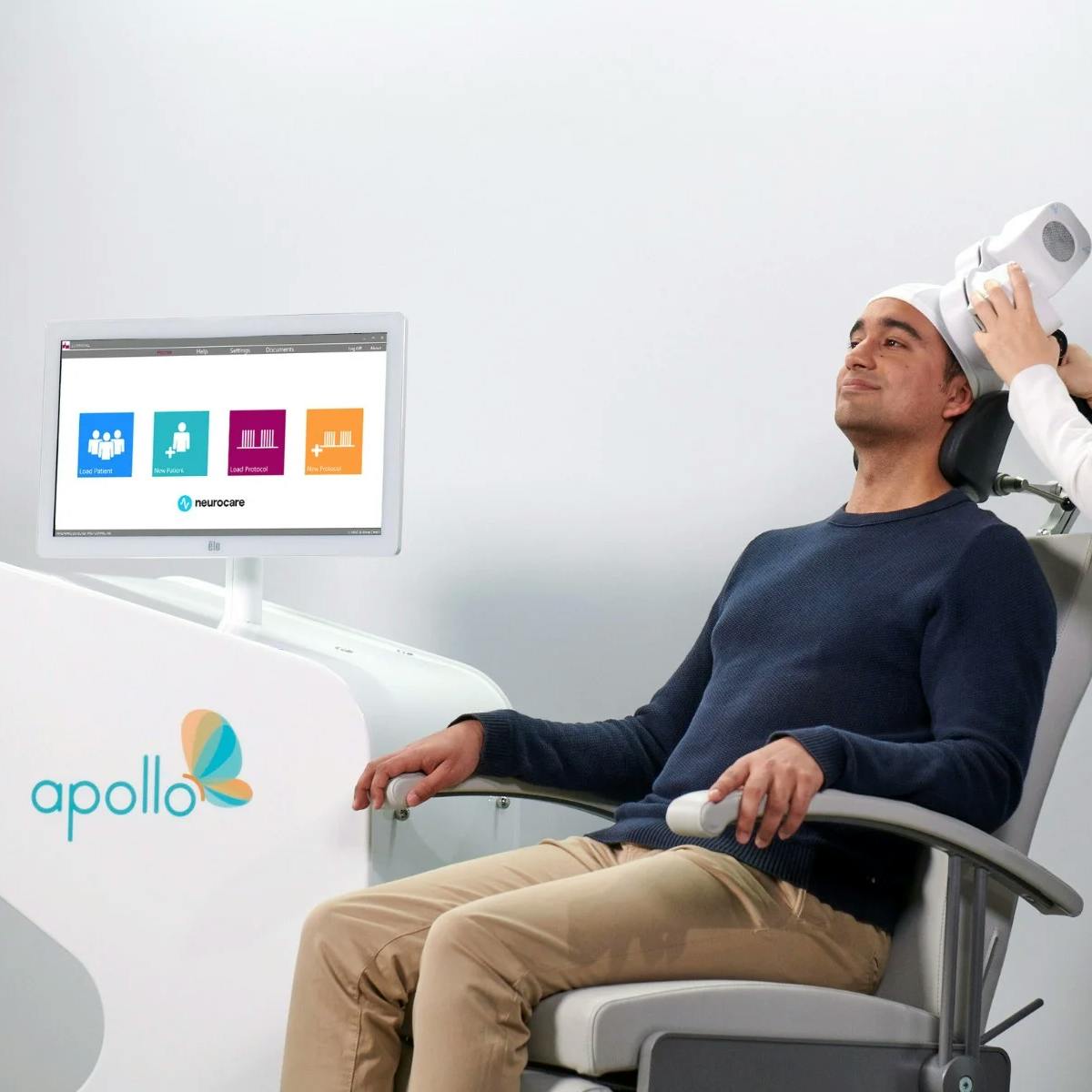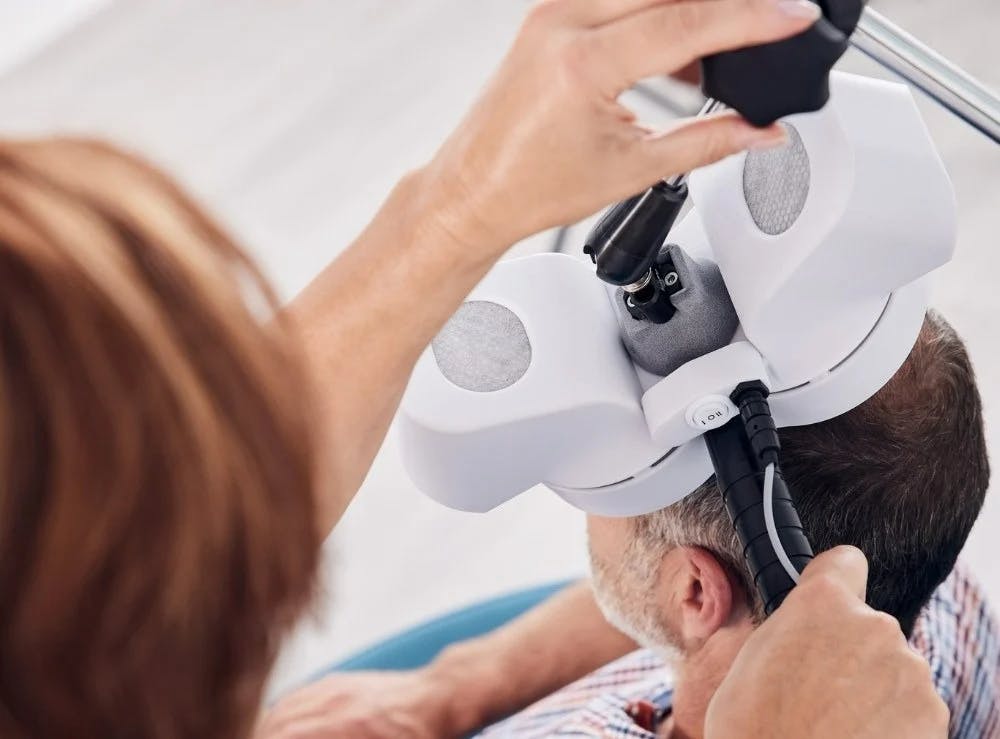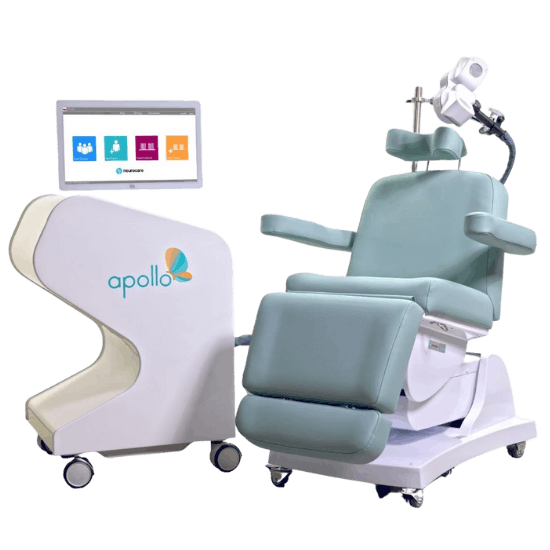TMS Therapy in Houston –
Clear Lake
If you’ve been living with depression for years and haven’t found relief with medication, Transcranial Magnetic Stimulation (TMS) may help. This FDA-approved therapy is shown to reduce symptoms in adults when other treatments haven’t worked.

There's Another Way to Treat Depression
Managing depression can feel overwhelming—especially when medications and therapy haven’t brought the relief you were hoping for.
You may be doing everything you can, but the symptoms persist.
That doesn't mean you're out of options.
What is TMS Therapy?
TMS Therapy: A Different Approach
TMS is a non-invasive, FDA-approved treatment for depression and other mood disorders.
Instead of relying on medication to circulate through your body, TMS uses magnetic pulses to stimulate areas of the brain involved in mood regulation.
Each treatment is delivered in a clinic setting, with no need for anesthesia or recovery time. Most patients resume normal activities right after their session.

How TMS Works
During each session, a small device is placed gently against the scalp, delivering magnetic pulses that activate areas of the brain involved in mood regulation.
These pulses help improve communication between brain cells, often leading to improved mood and emotional clarity over time.
TMS is typically administered five days a week for 4 to 6 weeks. Each session lasts about 20 to 40 minutes, and most patients can return to their usual activities immediately afterward.

State-of-the-Art Technology
Our clinic uses the Apollo TMS Therapy System, a next-generation device designed to deliver precise, effective brain stimulation using advanced coil technology.
It features an industry-leading short pulse width to optimize cortical activation, while a quieter, more efficient design enhances comfort during treatment.

TMS Therapy Benefits
- Effective for Treatment-Resistant Depression
- Long-Lasting Symptom Relief
- No Weight Gain, Sexual Dysfunction, or Drowsiness
- Non-Invasive & Drug-Free
- Quick 20–40 minute, Convenient In-Office Sessions
- FDA-Approved for depression and certain neurological disorders.
- Safe & Well-Tolerated

Backed by Research. Proven in Practice.
The effectiveness of TMS therapy is supported by decades of clinical studies and real-world patient outcomes.
For individuals who haven’t found relief through medication or therapy, TMS offers measurable, lasting improvement.

What the Research Shows
High Success Rates: 70–80% of patients undergoing TMS experience relief
Meaningful Remission: 50% of patients achieve full remission of symptoms
More Effective than Antidepressants: Higher success rates than typical antidepressants
Proven for Treatment-Resistant Depression: 30% see improvement; 19% reach remission
Lasting Relief: Benefits may last 6–12 months or longer with maintenance care
Results are based on peer-reviewed clinical studies and may vary. Ask your provider what outcomes may be realistic for your specific condition.

Meet Your TMS Provider:
Rudy Lozano, M.D.
Dr. Lozano is a board-certified psychiatrist with specialized experience in Transcranial Magnetic Stimulation (TMS) therapy and a focus on the treatment of depression and ADHD.
He earned his medical degree from the University of Texas Medical Branch and completed his psychiatry residency at Baylor College of Medicine, where he served as Chief Resident during his time at the Menninger Clinic, one of the nation’s top psychiatric institutions.
Dr. Lozano also contributes to the broader field of psychiatry through published research on brain function and mental healthcare access. All TMS treatments are supervised directly by Dr. Lozano to ensure precision, comfort, and continuity of care.
What to Expect: Safety and Side Effects
TMS therapy is generally well-tolerated. Most side effects are mild and temporary—such as headaches or scalp discomfort—and often subside after the first few sessions.
In rare cases, more serious side effects can occur. Your provider will review your medical history and ensure that TMS is a safe, appropriate option before beginning treatment.

Who’s a Good Candidate for TMS Therapy?
TMS may be right for you if you:
- Have Major Depressive Disorder (MDD)
- Have tried multiple medications without sufficient relief
- Prefer a non-invasive, drug-free treatment
- Are able to attend treatment sessions 5 days per week for several weeks
TMS may not be recommended for individuals with:
- Metallic implants in or near the head (e.g., pacemakers, cochlear implants)
- A history of seizures or traumatic brain injury
- Bipolar I disorder with a history of rapid cycling or psychosis
- Unstable psychiatric conditions
- Pregnancy (depending on individual factors—discuss with your provider)

Take the next step toward feeling better.
We’ll help you determine whether TMS is the right fit for your symptoms, history, and goals—and guide you through each step with care.